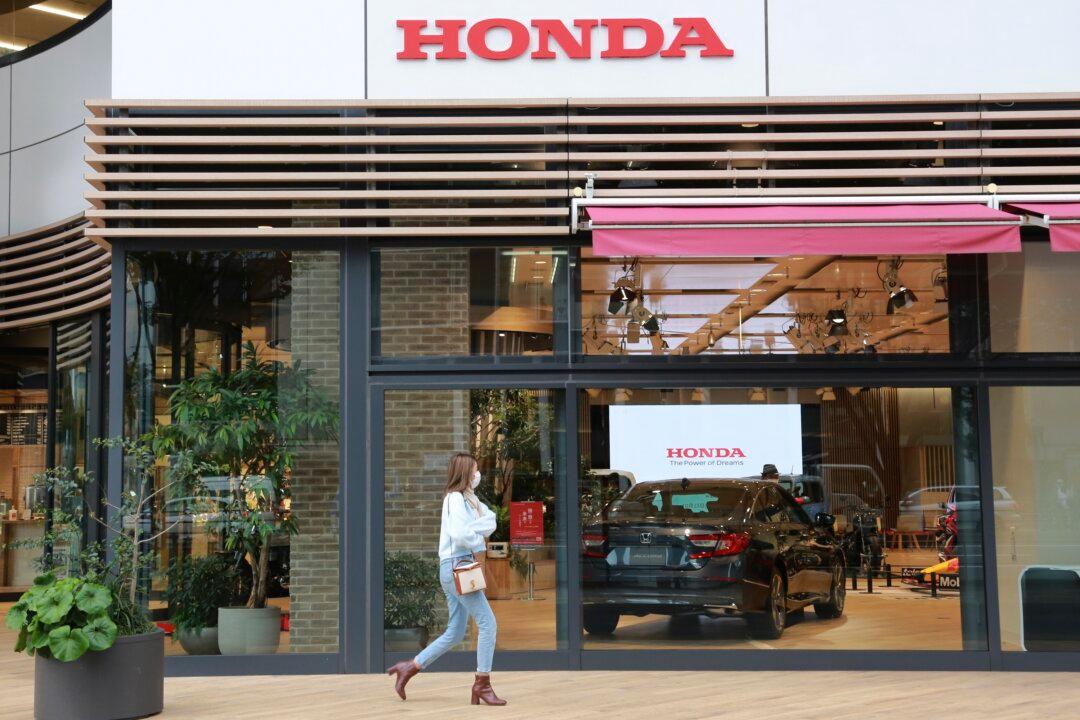TOKYO—Honda’s profit for the fiscal year that ended in March dropped 1.7 percent as sales took a hit from a semiconductor shortage and restrictions in China related to the coronavirus pandemic.
But the Japanese automaker said Thursday that recovery was on the way, forecasting record sales and operating profitability for the current fiscal year.





